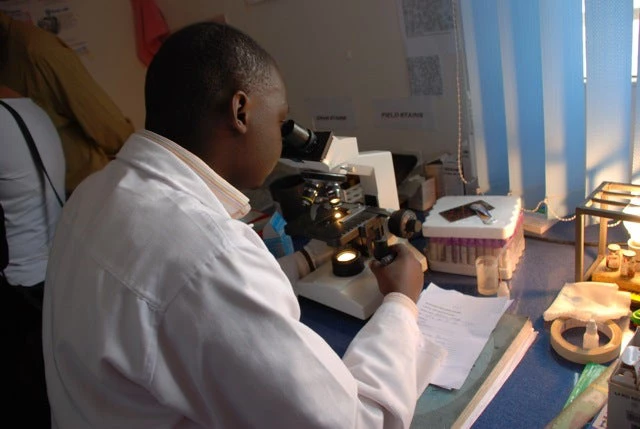
Many laboratories are not adequately prepared to respond during public health emergencies, yet their services are critical to detecting new pathogens and containing disease outbreaks.
World Laboratory Accreditation Day, observed recently, offers a good opportunity to draw attention to the critical role of laboratories in health, and the importance of accreditation in promoting quality. Accurate and reliable laboratory services are critical for conducting clinical diagnosis, guiding treatment, and responding to disease outbreaks. There’s a growing recognition of the importance of laboratory services, and several important initiatives have been launched, including the WHO-AFRO Stepwise Laboratory Improvement Process towards Accreditation (SLIPTA).
This stepwise accreditation process is being rolled out under the World Bank-funded East Africa Public Health Laboratory Networking Project with promising initial results in terms of benchmarking, tracking and monitoring performance in targeted laboratories in five countries (Burundi, Kenya, Rwanda, Tanzania, and Uganda). Accreditation is proving critical to instilling a culture of continuous quality improvements, and establishing a pathway for laboratories to progressively move towards the attainment of five stars based on the level of compliance with the standardized WHO-AFRO checklist.
The 31 project-supported laboratories are situated primarily in cross-border areas, which experience frequent disease outbreaks, and serve marginalized communities and other vulnerable groups. The concept of accreditation is new to most of them, but has been well-received, particularly as it is viewed as a way to enhance working conditions and boost quality of care.
A number of key lessons are emerging from the initial phase, including the importance of: (i) conducting assessments using a peer approach (whereby certified assessors from one country assess labs in the neighboring country) to ensure independence of results; (ii) developing a pool of regionally certified assessors; and (iii) addressing gaps through laboratory improvement plans which empower lab staff to identify solutions to their own problems. Most importantly, the accreditation scheme has shown that rapid results can be attained within a short period.
To date, one facility has attained a 1-star rating, seven have reached 2-stars, one scored 3 stars, and one has been awarded 5 stars. The challenge now is to sustain these improvements and assist the others to progress on the accreditation ladder.

More
East Africa Public Health Laboratory Networking Project


Join the Conversation